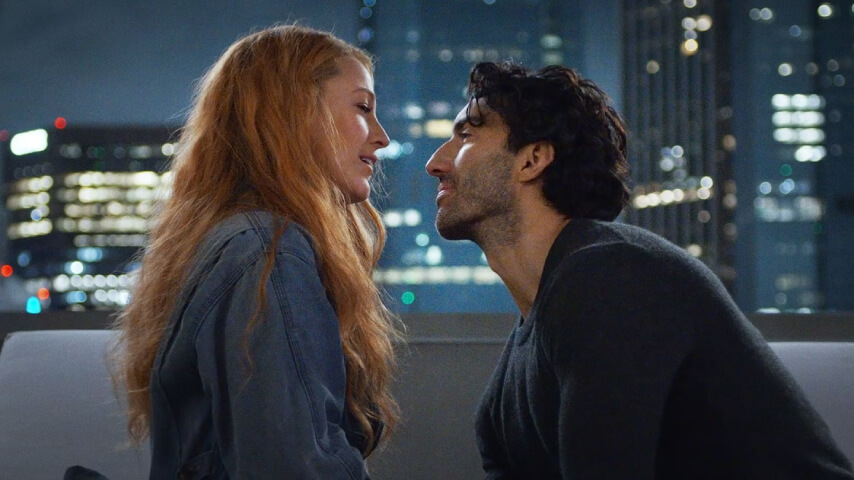Cloying and clumsy, It Ends With Us weaves a domestic abuse fantasy
Adapting Colleen Hoover's bestseller becomes an exercise in how tone-deaf a movie can become.
Photo: Sony
It Ends With Us is “one of the most popular books of the decade,” according to this Vox article I looked at five seconds ago. Colleen Hoover has been writing for over ten years and gained ground with her self-published forbidden romance novel Slammed in 2012. Polarizing for her fluffy prose and intense subject material, she became a NYT bestselling, BookTok fan-favorite romance novelist in the latter half of the past decade. Covid lockdowns incentivized TikTok usage, and reading weepy Hoover novels became a communal experience to be filmed for an audience. Her highest-selling book to date, It Ends With Us, was prime subject matter for a film adaptation: the story is equal parts harrowing, romantic, and inspiring, while easily digestible and grit-free. Allegedly based on Hoover’s parents, who divorced when she was two and whose fraught, physically abusive relationship remains only as a vague memory for her, she wrote the book not just to entertain but to inform—which was, as Hoover confesses, unlike anything she had previously attempted.
If the book is anything like the movie, I am not quite sure the story succeeds at its quasi-educational objective in advocating for domestic abuse survivors. It comes across as domestic abuse fan-fiction, creating the best-case scenario romance for Lily Bloom (Blake Lively, comfortably within her limited range) and her abusive yet penitent husband, Ryle (Justin Baldoni). There’s an easy escape, an easy catharsis; even the abuse itself is somewhat hedged, teetering between genuine violence and simple accidents without malice behind them. Directed by Baldoni himself, the creative force behind such stirring YA classics as Five Feet Apart and Clouds returns with his signature brand of romantic drama journeyman filmmaking to tackle the heavy material for this 130-minute adaptation. Sure to hit with its target audience regardless of quality (Where The Crawdads Sing is proof that the romance page-turner contingent is legion), I was surprised at how much I didn’t hate watching this in spite of its failures.
Lily and Ryle have a charmed meet-cute on a Boston high-rise rooftop one night as Lily contemplates the recent death of her father, an activity which requires sitting precariously on the edge of a very tall building. The pair hit it off instantly, but Lily is unwilling to keep it moving on the grounds that Ryle is a serial dater, not a relationship guy. Still, fate has other plans for the aspiring florist (yes, Lily Bloom loves flowers; it’s so self-admittedly twee it makes you want to pull your fingers off) and the chiseled neurosurgeon. The pair meet a second time after Lily unknowingly hires Ryle’s eccentric sister Alyssa (Jenny Slate) to help Lily at the flower shop she’s in the process of opening in downtown Brooklyn. A will-they-won’t-they dynamic emerges: Ryle is intent on winning Lily’s affections, while Lily skirts his advances, no interest in getting her heart broken by a playboy. One day, though, Ryle admits to Lily and Alyssa that what he feels for Lily is “different” than what he’s felt for the girls he’s merely toyed with before. Those are the magic words Lily needed to hear to embark upon a too-good-to-be-true romance.
Of course, Ryle has a hidden temper, bread-crumbed in his first meeting with Lily. He’s prone to brief fits of rage in which it seems like he isn’t in complete control of his body. The same morning Lily tells Ryle she loves him. he flings his arms around and whacks her in the face as he struggles with a burnt frittata. In the chaos of the moment, it comes across like an accident. Even a stairwell fight—caused by jealousy over Lily’s rekindled connection with a high school fling—that ends with Lily literally falling down the stairs is presented as a mishap in the heat of the moment rather than an intentional act of harm.
 Keep scrolling for more great stories.
Keep scrolling for more great stories.
